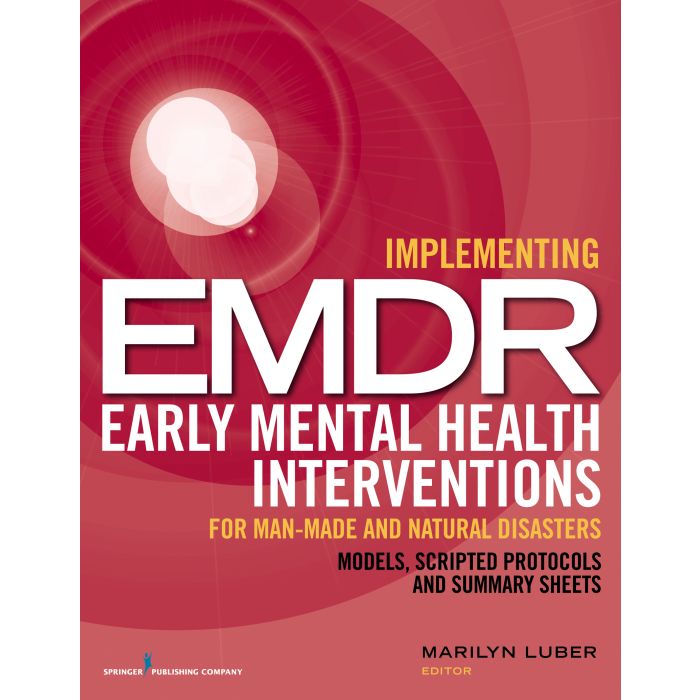Early Eye Movement Desensitization and Reprocessing (EMDR) intervention in a disaster mental health care context
This study suggest that EMDR is a viable treatment in response to a disaster crisis in reducing psychological distress of individuals.
Article Abstract
“‘Early psychological intervention’ is defined as commencing treatment within three months of the traumatic event, with the aim to prevent or treat posttraumatic stress disorder, ongoing distress or acute stress disorder. In natural disaster situations, specific issues may limit the amount of time available for treatment and the possibility of interventions. Eye Movement Desensitisation and Reprocessing (EMDR) can be used without regard to these limits. The aim of the study is to evaluate the effects of EMDR, Recent Traumatic Episode Protocol (R-TEP) provided within three months of the traumatic event to a large sample of individuals exposed to the earthquake that hit Emilia Romagna Region (Northern Italy) in 2012. This study is based on a retrospective review of medical records collected during the activities of psychological and psychosocial unit in the immediate aftermath of earthquake. In total, 529 participants completed the Impact of Event Scale Revised (IES-R) (pre e post treatment). In order to provide a comparison similar to a waitlist-like control group, a method of cohort analysis was applied. In addition, possible time dependent effect was tested. ET (early-treated sample, participants treated within one month after the earthquake) and LT (late-treated sample, participants treated after the first month from the earthquake) reported at post-treatment an improvement to a level below the IES-R cutoff (65.8% of the ET sample and 64.02% of the LT sample). Control group analogue and time-outcome correlation suggest that positive changes in symptoms were likely due to the treatment provided and not merely to the time lapse from the traumatic event. The results of this study suggest that EMDR is a viable treatment option in response to a disaster crisis and in reducing psychological distress of acutely traumatized individuals within the context of a natural disaster.”
—Description from publisher
Article Access
Open Access OR Purchase/Subscription Required
Saltini, A., Rebecchi, D., Callerame, C., Fernandez, I. Bergonzini, E., & Starace, F. (2017). Early Eye Movement Desensitization and Reprocessing (EMDR) intervention in a disaster mental health care context. Psychology, Health & Medicine, 23(3), 285-294. http://dx.doi.org/10.1080/13548506.2017.1344255
About the Journal
“Psychology, Health & Medicine is a multidisciplinary journal highlighting human factors in health. The journal provides a peer reviewed forum to report on issues of psychology and health in practice.”
—Description from publisher
Date
June 25, 2017
Creator(s)
Anna Saltini, Daniela Rebecchi, Chiara Callerame
Contributor(s)
Isabel Fernandez, Elisa Bergonzini, Fabrizio Starace
Topics
Tragedies
Practice & Methods
EMDR Early Intervention
Extent
10 pages
Publisher
Taylor & Francis
Rights
Rights managed by Taylor & Francis
APA Citation
Saltini, A., Rebecchi, D., Callerame, C., Fernandez, I. Bergonzini, E., & Starace, F. (2017). Early Eye Movement Desensitization and Reprocessing (EMDR) intervention in a disaster mental health care context. Psychology, Health & Medicine, 23(3), 285-294. http://dx.doi.org/10.1080/13548506.2017.1344255
Audience
EMDR Therapists, Other Mental Health Professionals
Language
English
Content Type
Article
Access Type
External Resource





